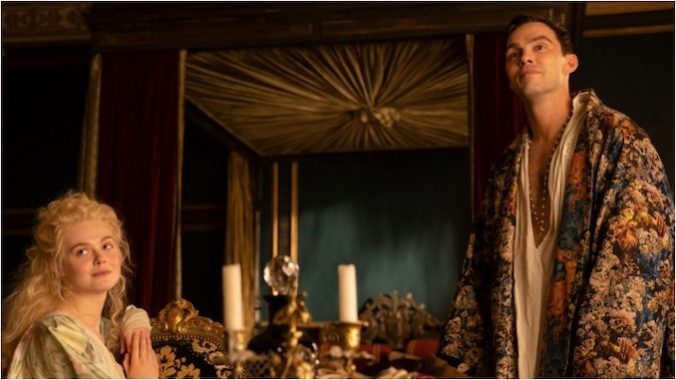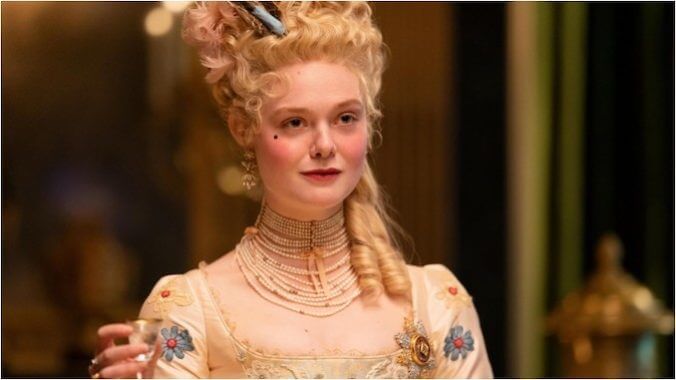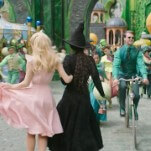In a Darker and More Mature Season 3, Hulu’s The Great Grows Up
Photo: Courtesy of Hulu
[This review was originally published on May 5th, 2023.]
With its bright, colorful aesthetic, penchant for violence, and occasionally raunchy humor, it’s easy to underestimate Hulu’s The Great, which has quietly emerged as one of the best shows of the streaming era. A delightful blend of traditional period drama tropes and biting satire that somehow manages to be both heartfelt and hilarious, The Great’s candy-coated exterior has always been a colorful gloss on more complex truths—about history and who is allowed to tell it, about female power and accomplishment, and the eternal clash between oppressive institutions and those yearning to be free of them.
In its ten-episode third season, The Great embraces what is ostensibly its most bonkers premise yet: Rather than leave Catherine the Great (Elle Fanning) and her husband Peter (Nicholas Hoult) at odds with one another, it asks what might happen if they were actually on the same side—and in doing so finds its strongest, most human story yet, one that extends beyond its central royal couple in ways both large and small.

The Great Season 3 is many things. It is heartbreaking, hysterical, frustrating, and deeply, beautifully weird. It is a story about love and betrayal and how difficult it is to truly see someone for who they are, rather than who you wish they were. It’s a lesson about how vulnerable love inevitably leaves you, how much genuine work it takes to care about something beyond yourself, and how we’re all stories in the end, in some form or other. Perhaps that’s The Great’s greatest trick: this may be an occasionally true story that only sometimes follows the letter of law when it comes to historical fact. But its spirit—one that embraces the humanity and heart of its subject—is unmatched.
Where Seasons 1 and 2 were about exploring competing power dynamics, Season 3 begins with Catherine and Peter on somewhat more equal footing. Catherine’s failed murder attempt has forced the Empress to reckon with her true feelings for her husband and the two are now trying to move forward despite their mutual and repeated betrayals. Both are finally clear-eyed about their genuine love for one another, but less sure about what that actually means for either of them in real life. And as both Catherine and Peter are repeatedly forced to make hard choices between their marriage and the people (or rulers) they want to be, difficult and heartbreaking consequences ensue.
Fanning is tremendous throughout, portraying a slightly more world-weary Catherine who has not only seen the worst she herself is capable of—she did stab a man five times and take Peter back, again!—but who is beginning to understand that she cannot magically girlboss-gaslight-gatekeep Russia into becoming the progressive, egalitarian society of her dreams using the power of peppy speeches and cute outfits. The nobles don’t like her and the serfs don’t trust her; heck, she can’t even get anyone to agree to outlaw murder. Forced to question both her purpose and her heart at various points in the season, Fanning’s performance runs the gamut from determined confidence to unhinged mania and everything in between.
-

-

-

-

-

-

-

-

-

-

-

-

-

-

-

-

-

-

-

-

-

-

-

-

-

-

-

-

-

-

-

-

-

-

-

-

-

-

-

-








































